Tag Archives: Q&A
Transparency FTW! LLMs, OpenBoxScience and GetFreeCopy
Scott Edmunds - May 30, 2024
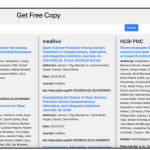
As an Open Science publisher we’ve pushed for transparency and access in the research that we disseminate, and in GigaByte journal we’ve just published a new open-source software tool “GetFreeCopy” that is demonstrative and addresses many features of this. To tell us more we have a Q&A with lead author Kuan-lin Huang, an Assistant Professor […]
Publishing Citizen Science Data: Q&A with the Hong Kong Jellyfish Project
Scott Edmunds - May 20, 2024

Today we publish a new Data Release presenting a dataset of jellyfish sightings collected by citizen scientists from 2021 through 2023 within Hong Kong waters. This is the first example where our curation team have worked with a Citizen Science project to share their observations in the GBIF biodiversity database. Here we have a Q&A […]
A Decade of FAIR – and what next? Q&A on FAIR workflows with the Netherlands X-omics Initiative
Scott Edmunds - January 14, 2024

Marking the 10th anniversary of the formulation of the FAIR principles, we have one of our GigaBlog Q&A’s with Peter-Bram ‘t Hoen, Alain van Gool, Anna Niehues and Casper de Visser from the Netherlands X-omics Initiative and Radboud University Medical Center in Nijmegen, authors of a new paper on publishing FAIR workflows. Giving us their […]
Archiving blogs, pt. 2: The GigaBlog Top of the Pops
Scott Edmunds - September 19, 2023
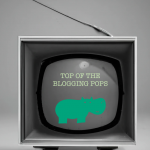
In the process of going back through our more than 300 posts over 12-years of blogging we thought we would highlight our favourites in a Top of the Pops style countdown.
Selective sequencing on a shoestring: the $300 HARU system
Hans Zauner - July 4, 2023

This week GigaScience published a cost-effective, open source hardware/software solution for selective sequencing, using the Nanopore Minion device and a tiny $300 device that is “two times faster than a 30,000 $ 36-core server, at a fraction of power consumption”.
Addressing the challenges of sharing computational workflows with Yevis. Q&A with Tazro Ohta.
Scott Edmunds - March 6, 2023
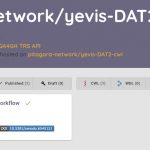
We have an author Q&A and video abstract with Tazro Ohta where he gives some insight into archiving workflows and his new Yevis platform.
AI Opportunities for Obsessive-Compulsive Disorder. Q&A with Henry Szechtman
Chris Armit - October 20, 2022
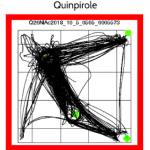
Q&A with Henry Szechtman on his new study providing enormous amounts of rat Obsessive-Compulsive Disorder data, comprising 11.1TB of videography from >2 years of continuous recording .
Not all species are equal: Using the h-index to quantify taxonomic bias (author Q&A)
Hans Zauner - August 16, 2022

The h-index is a metric that was invented to summarise the publication output and impact of researchers. In a new GigaScience article, authors from the University of New South Wales (Australia) adopt the controversial metric to explore systematic differences in research interest (taxonomic bias), using mammals as an example.
Publishing Citizen Science data to fight against mosquito borne diseases
Scott Edmunds - May 31, 2022
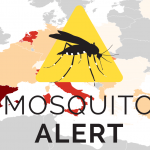
Citizen Scientists share and publish Mosquito Alert data as part of our GigaByte (& GBIF & TDR supported) series on vector-borne diseases.
Opening access and exploring sepsis in an Intensive Care database. Q&A with Tom Edinburgh
Chris Armit - March 15, 2022
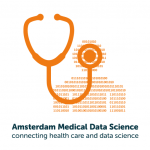
Author Q&A with Tom Edinburgh on his new GigaByte paper presenting Sepsis-3 criteria in AmsterdamUMCdb, an Intensive Care database.